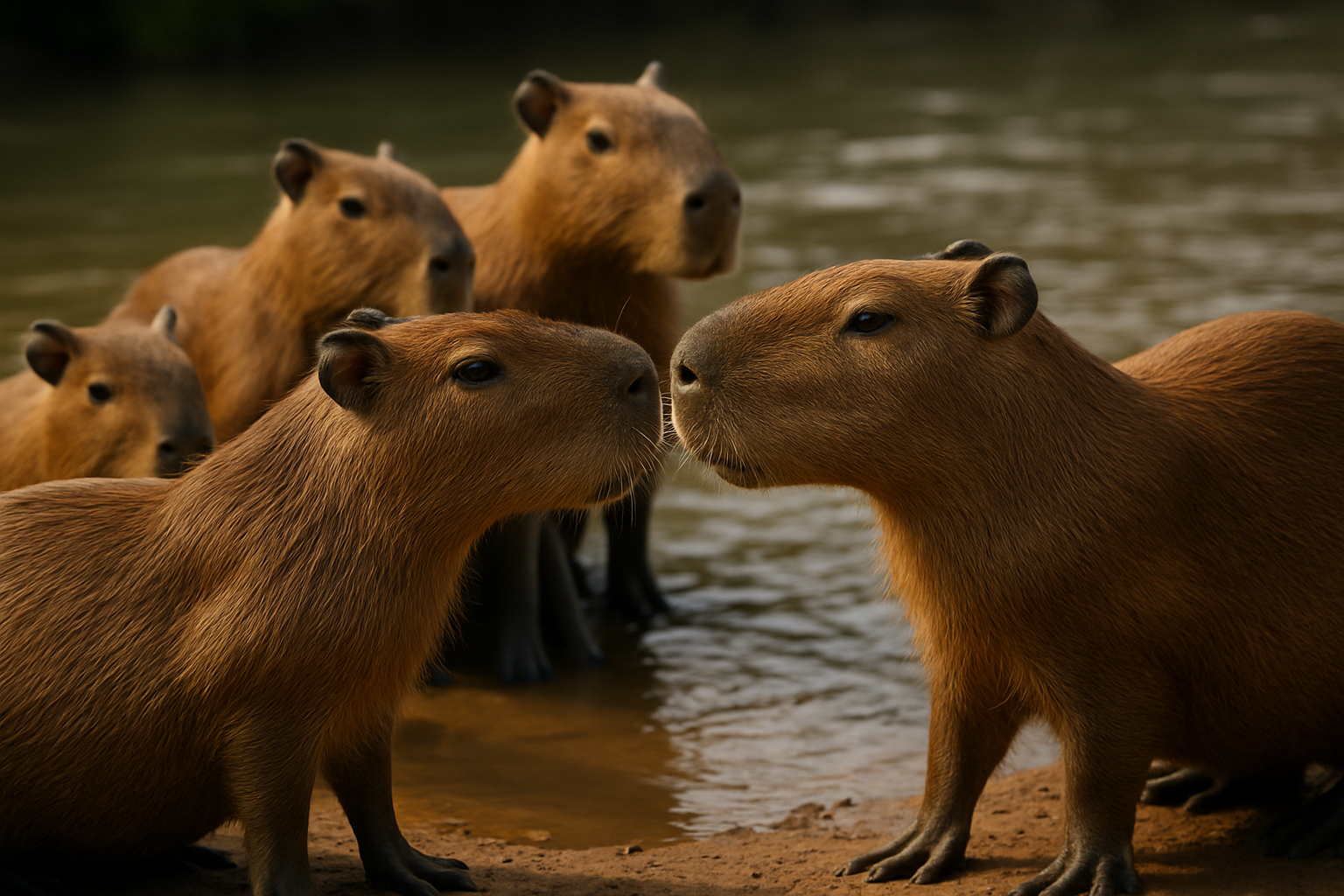The Curious World of Capybara Companionship
A giant rodent with a gentle demeanor, the capybara is emerging as an unconventional yet captivating pet choice. These social creatures, native to South America, are winning hearts with their docile nature and unique characteristics. As interest grows, so does the need to understand the intricacies of capybara care, legal considerations, and the impact of this trend on both the animals and their human companions.

The Rise of Capybaras as Exotic Pets
The trend of keeping capybaras as pets has gained momentum in recent years, particularly in regions where exotic pet ownership is permitted. This shift can be attributed to several factors, including increased exposure through social media, where videos of capybaras interacting with humans and other animals have gone viral. Their calm demeanor and social nature have contributed to their appeal, with many viewing them as an alternative to traditional pets.
However, the growing interest in capybara ownership has raised concerns among animal welfare advocates. These animals have specific needs that can be challenging to meet in a domestic setting, leading to debates about the ethics and practicality of keeping them as pets.
Legal and Ethical Considerations
The legality of owning a capybara varies widely depending on location. In many countries and states, capybaras are classified as exotic pets, requiring special permits or licenses. Some regions prohibit their ownership entirely due to concerns about public safety, animal welfare, and potential ecological impact if released into non-native environments.
Prospective owners must thoroughly research local laws and regulations before considering a capybara as a pet. This process often involves obtaining permits, meeting specific housing requirements, and demonstrating the ability to provide appropriate care. The legal landscape surrounding exotic pet ownership is continually evolving, reflecting changing attitudes towards animal welfare and conservation.
Capybara Care: A Complex Commitment
Caring for a capybara is a significant undertaking that requires extensive knowledge, resources, and dedication. These semi-aquatic rodents have unique needs that must be met to ensure their health and well-being in captivity.
Housing is a primary concern, as capybaras require ample space both on land and in water. A suitable enclosure should include a large swimming area, as capybaras spend considerable time in water to regulate their body temperature and maintain skin health. The enclosure must also provide shelter from the elements and areas for basking and grazing.
Diet is another crucial aspect of capybara care. In the wild, these herbivores primarily consume grasses and aquatic plants. Replicating this diet in captivity requires a carefully balanced mix of hay, fresh vegetables, and specially formulated feed. Proper nutrition is essential for maintaining their health and preventing obesity, a common issue in captive capybaras.
Social Needs and Behavior Management
Capybaras are highly social animals that live in large groups in their natural habitat. This social nature translates to their life in captivity, where they thrive on interaction with both their own kind and their human caretakers. Keeping a single capybara is generally discouraged, as it can lead to stress and behavioral issues.
Integrating capybaras with other pets or family members requires careful consideration and supervision. While known for their gentle nature, capybaras can become territorial or stressed in unfamiliar situations. Proper socialization and training are essential for creating a harmonious household.
Health Considerations and Veterinary Care
Finding veterinary care for capybaras can be challenging, as not all veterinarians are experienced in treating exotic rodents. Regular check-ups, vaccinations, and preventive care are crucial for maintaining the health of these unique pets. Common health issues in captive capybaras include dental problems, parasitic infections, and skin conditions related to inadequate water access.
The cost of veterinary care for capybaras can be significant, often exceeding that of traditional pets. Prospective owners should factor in these expenses when considering capybara ownership, along with the costs of specialized diets and housing requirements.
The Impact of Capybara Companionship
As the trend of capybara ownership grows, it’s important to consider the broader implications. While these animals can form strong bonds with their human caretakers, the ethics of keeping wild animals as pets remains a topic of debate. Conservation efforts for wild capybara populations may be affected by the pet trade, and there are concerns about the potential for abandoned or escaped pets to establish invasive populations in non-native habitats.
On a positive note, responsible capybara ownership can contribute to education and awareness about these fascinating creatures. Many capybara owners become advocates for conservation and work to dispel misconceptions about these gentle giants.





